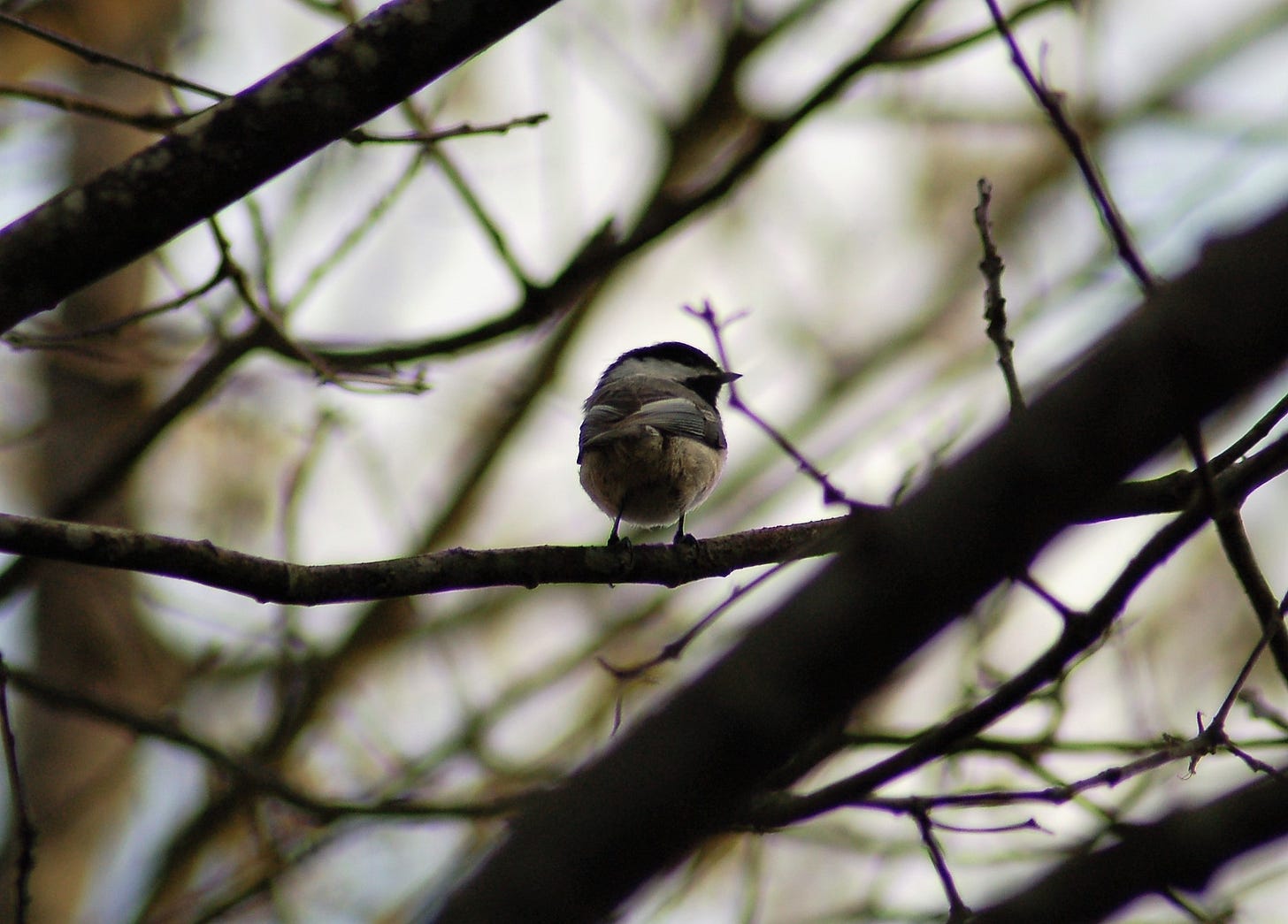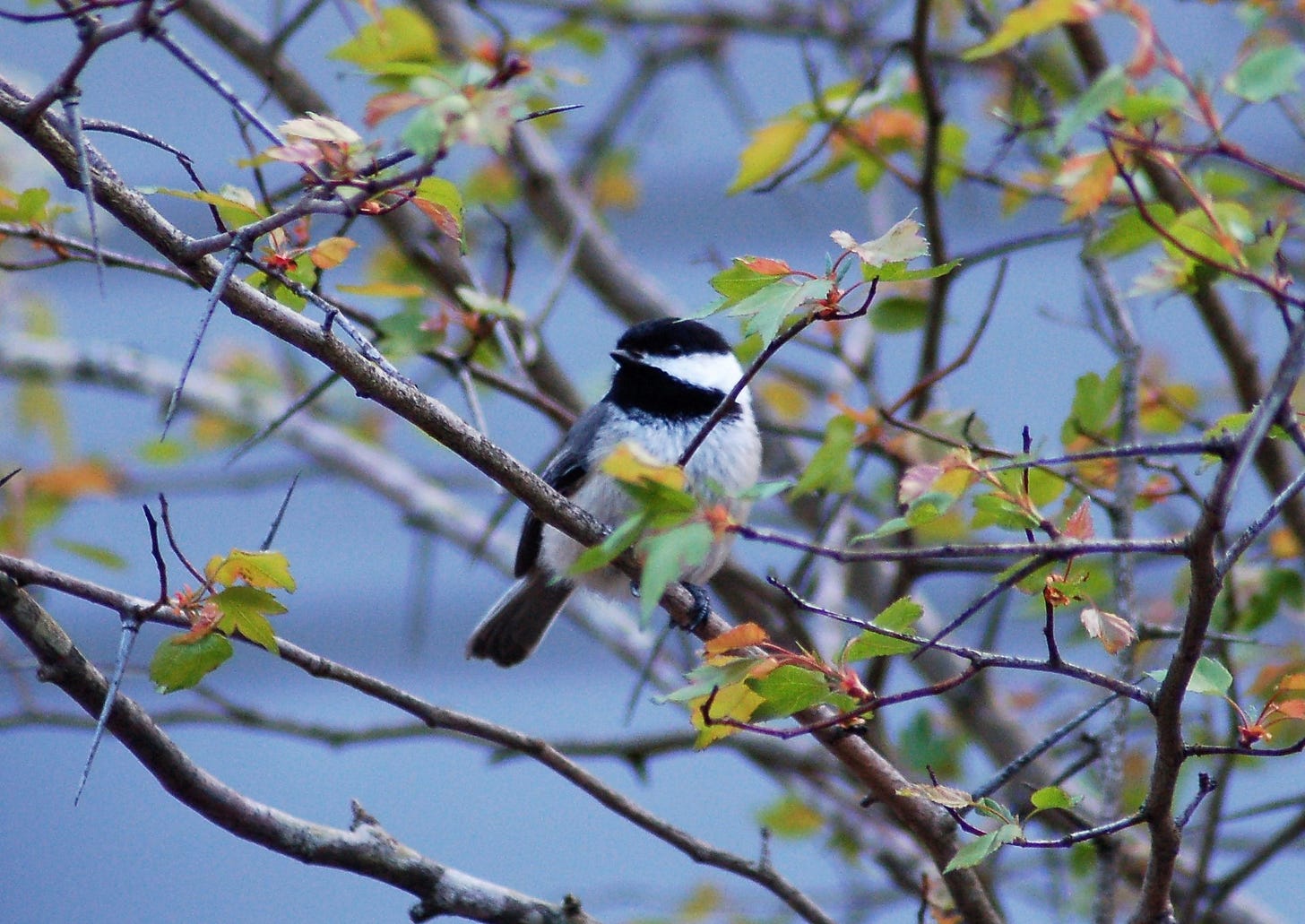The Borg of Star Trek are brutal, fascinating, and adaptive. They constantly seek new knowledge by forcibly assimilating entire civilizations and cultures into their collective hive-mind. They also adapt to threats, such as by upgrading their shields to deflect new phaser rifle frequencies. The Black-capped Chickadee is, of course, much cuter than the Borg. These birds are also not a galaxy-spanning, conquering race of cyborgs. But they are very good at adapting. In fact, according to the Cornell Lab, “Every autumn Black-capped Chickadees allow brain neurons containing old information to die, replacing them with new neurons so they can adapt to changes in their social flocks and environment even with their tiny brains.” Now that is some amazing adaption.
Don’t forget! The Bird Time Blog is running a competition for a $30 e-gift card to either Petco or PetSmart from now until 5:00pm EST Tuesday June 13th! Anyone who joins the below campaign and refers new subscribers will have a chance to win a $30 e-gift card to either Petco or PetSmart.
Eliminating old brain cells hilariously reminds me of when I once desperately deleted memory-hogging Steam games and unused files from my old college laptop to keep it running smoothly for just a little bit longer… This small bird doesn’t have the brain capacity of higher organisms (such as we humans) to remember vast amounts of information. So the idea of it ruthlessly replacing outdated brain neurons is both fascinating and clever. Indeed that is a capability that we probably don’t have (it is debated whether or not humans could ever regrow neurons with the help of future technologies). This regeneration ability is something these birds also share with the Borg—at least when it comes to their self-repairing cube-shaped warships.
Replacing neurons likely helps the bird avoid mistakes that would have otherwise been made from incorrectly applying past lessons or information to new and entirely different situations. After all, we humans struggle with confirmation bias and reading into situations based on our past experiences. As my poor wife knows, one of my interests is military history. So for instance, humans struggle with being able to imagine and anticipate what the next conflict might look like. As a result, they instead “fight the last war” as the saying goes. The cavalry charges of the Napoleonic era were a terrible idea in the face of machine guns in World War I and World War I’s trenches and fortifications were a terrible idea in the face of mobile, combined arms in the form of tanks and planes. In the case of the Chickadee, it is thought that neural regeneration helps it remember hundreds of new locations where it squirrels away food and snacks for later. So also a way to improve survival, albeit not on the battlefield.
The Black-capped Chickadee is a common sight at bird feeders, which is near where I was where I found this bird while at a national park in rural Maryland. It can be recognized by its classic call that literally sounds like it is saying its name “chicka-dee" or “chicka-dee-dee”. As I’ve written before, birds have an alarm system by which their calls alert other birds to potential threats. Well, the Chickadee is no different and its the number of dees in its call is apparently correlated to its perceived danger. The more dees, the more the greater the threat.

A final fun fact: the Chickadee was adopted in 1927 as the State Bird of Maine. It can be found in the northern half of the continental United States, including Alaska.
Remember to subscribe if you want more birds in your inbox and also to join the campaign for a chance to win that e-gift card!
Until next (Bird!) time,
Grover







Black capped chickadees are among my very favorite birds. It makes me smile every time I see them outside my kitchen window or hear their call. However, I doubt that they are able to "allow" their worn out brain neurons to be replaced or not. I doubt they have any say in the matter and that is a function that God put in place to help the little critters survive.